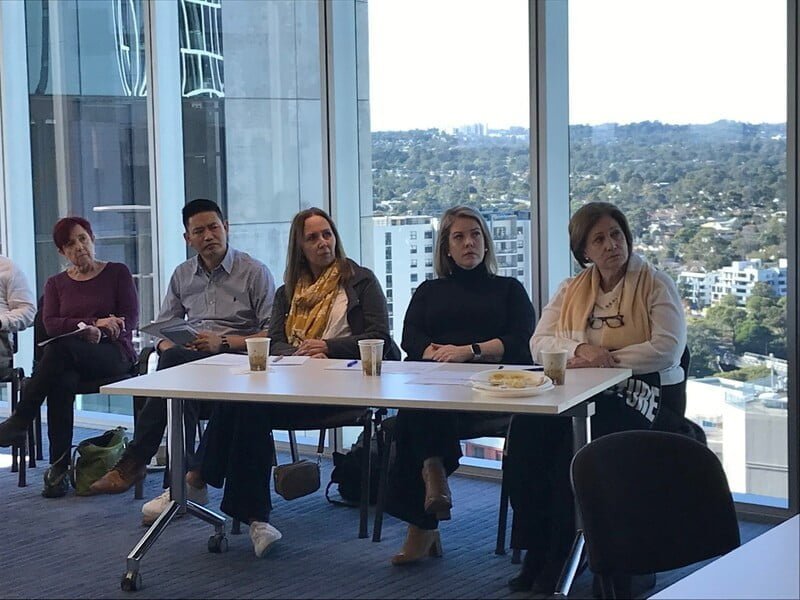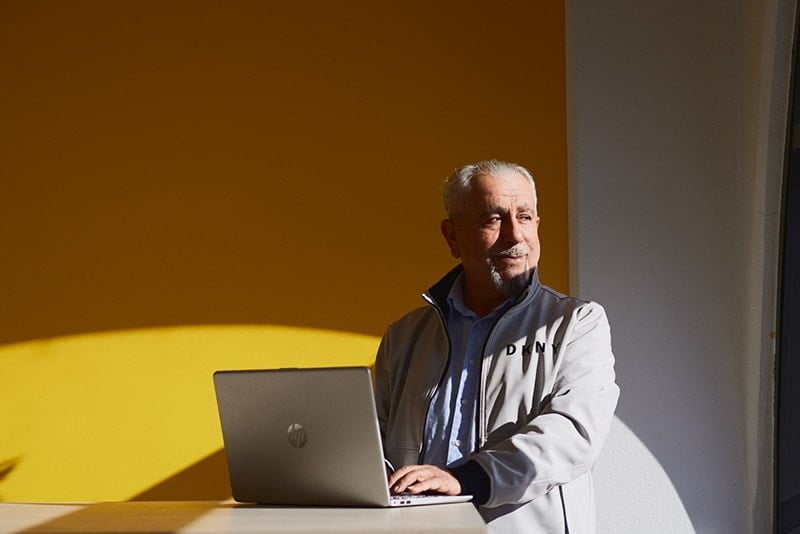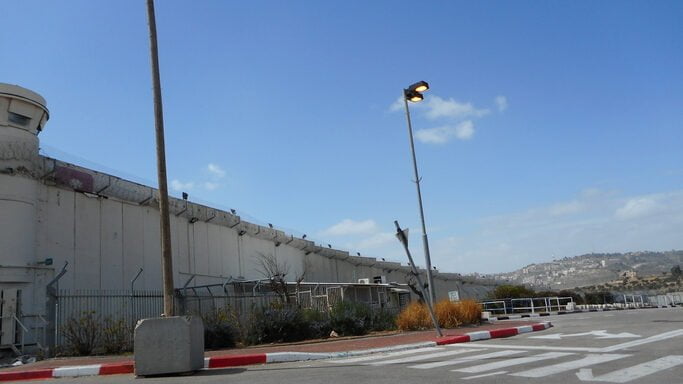
Learning and development in the early years of a child’s life sets the foundation for their future trajectory. The Productivity Commission’s final report on the Early Childhood Education and Care inquiry, released today, is a welcome step towards levelling the playing field for all children, particularly in reducing developmental disparities among culturally and linguistically diverse (CALD) children.
The report outlines a vision for a universal Early Childhood Education system that prioritises improved affordability, inclusion, and flexibility. This is key to securing Australia’s social, cultural, and economic future.
We know from our own work with communities across Australia that children from CALD backgrounds are more likely to be developmentally vulnerable when starting school and less likely to access early childhood education.
This is also highlighted in our Stronger Starts, Brighter Futures II research, conducted jointly with researchers at Education Futures, University of South Australia, which aligns with the Productivity Commission’s findings, particularly on the observations on developmental vulnerability.
Socio-economic disadvantage is a large driver of developmental vulnerability for all children. This plays a huge role in shaping the developmental outcomes of children from CALD communities in particular as they disproportionately experience socio-economic disadvantage, according to Stronger Starts.
Almost a third of children from CALD backgrounds living in the most disadvantaged socio-economic areas were developmentally vulnerable compared to 1 in 6 of their peers living in the most advantaged areas.
We are heartened that the Productivity Commission’s recommendations align with those from our research, particularly in calling for greater investment to support the inclusion of CALD children and their families.
We urge the government to consider these recommendations and prioritise investment in place-based services that have proven effective in supporting developmentally vulnerable children, which have been advocated for in both the Commission’s report and our research.
We also welcome the report’s specific recommendations to address both financial and non-financial barriers to participation for CALD children, and to invest in programs that enhance cultural safety and responsiveness in services, potentially through the use of bilingual and bicultural educators.
PRONIA, SydWest Multicultural Services and Settlement Services International establish an alliance with RMIT University to link students with diverse communities.
A first-of-its-kind community co-design consortium, launched last week, will give RMIT engineering students the opportunity to shift the dial on some of the big challenges facing culturally and linguistically diverse communities in Australia.
Working at the intersection of engineering practice and community-led collaboration, the RMIT Humanitarian Engineering Research Consortium/Understanding and Leveraging Engineering with Society, or HERCULES for short, ensures students learn the fundamentals of engineering by solving real-world challenges through genuine engagement with culturally and linguistically diverse communities via not-for-profit organisations.
Last week, first year mechanical engineering student, Tahlia Torcasio presented four humanitarian-design prototype finalists to an audience of community leaders and RMIT University academics who comprise the first-of-its-kind community co-design consortium.
“My fellow humanitarian engineering students and I are motivated by the drive to move the needle on some of society’s most challenging problems, and being part of HERCULES will be a game changer for our education. Engaging with community via human service organisation to co-design solutions is a win-win for our understanding and community impact,” said Ms Torcasio.
Dr. Spyros Schismenos, lecturer in Humanitarian Engineering is the co-leader of RMIT’s Humanitarian Engineering Lab who’s passionate about the advancement of innovative teaching and research at the intersection of human-centered design, technology, and experiential learning.
“By forging alliances with organisations working at the coalface of complex social and human challenges such as Sydney’s Sydwest Multicultural Services, Melbourne’s PRONIA and national Settlement Services International, we will ensure students design solutions with, not just for, people,” explained Schismenos
The students’ prototypes ranged from a sustainable pest-resistant bamboo house designed for extended family lifestyles, to a sun-tracking solar panel built to be accessed by multiple households. The prototypes were created by a winning team of 18 first-year students in response to community consultation and as part of the RMIT SydWest Engagement Challenge.
The RMIT SydWest Engagement Challenge attracts more than 1000 students enrolled in RMIT’s Introduction to Professional Engineering Practice and guides students on community engagement and co-design practice, giving students first-hand experience to understand and work with Australia’s culturally and linguistically diverse communities.
Quotes:
Violet Roumeliotis, CEO, Settlement Services International (SSI)
SSI CEO Violet Roumeliotis said the partnership demonstrates a shared commitment to empowering engineering students and supporting communities to co-design solutions to some of our most pressing challenges.
“Diverse communities face numerous challenges, often punctuated by inequality and lack of opportunity afforded to other sectors of society. SSI supports refugees, people seeking asylum, culturally and linguistically diverse communities, people living with disability, Aboriginal and Torres Straits Islander communities, women, youth, families and LGBTIQA+ communities.
By working with RMIT University and HERCULES consortium partners, we’ll provide a unique engagement experience that supports students in their educational pursuits and helps communities co-create place-based solutions,” she said.
Elfa Moraitakis, CEO, SydWest Multicultural Services
SydWest Multicultural Services CEO, Elfa Moraitakis said the impetus to join the HERCULES consortium grew from the students’ response to the RMIT SydWest Engagement Challenge where she saw first-hand the impact of collaboration that comes from genuine engagement.
“Working from a strength-based perspective enables individuals and communities to provide insights and solutions to the challenges impacting them. This approach enables students to develop these skills early in their career and to design engineering solutions with the end-user in mind.
“The Western Sydney region is a diverse and vibrant area with a mix of unique challenges and creative insights and perspectives providing students with a rich learning ground,” said Moraitakis.
Nikki Efremidis, Interim CEO, PRONIA
PRONIA Interim CEO, Nikki Efremidis is passionate about identifying interventions for some of Australia’s priority communities and co-creating solutions for pressing real-world social and humanitarian issues.
“It’s a wonderful initiative to bring like-minded community organisations together to build a consortium that will harness ideas and opportunities to help students to combine engineering practice with social engagement skills.
“The humanitarian engineering program, through Dr Schismenos, who also works with UNESCO, will bring a unique perspective to community collaboration and co-design on topics that put community at the heart of innovation,” said Efremidis.
For more information on RMIT University Humanitarian Enginneering course visit https://www.rmit.edu.au/about/schools-colleges/engineering/news/humanitarian-engineering
Findings from a once-in-a-generation review released yesterday set a progressive vision for multicultural Australia, according to non-profit organisation, Settlement Services International (SSI).
SSI welcomed the release of the Multicultural Framework Review, Towards Fairness: A multicultural Australia for all, which drew on the voices of thousands of Australians to undertake the first comprehensive review of multicultural policy in Australia in more than 50 years.
SSI CEO Violet Roumeliotis said multiculturalism was a core part of Australia’s national identity and while multiculturalism as a policy had evolved from strong foundations, it needed a reset to advance a multicultural Australia.
“We commend both the Federal Government and the review panel for delivering this comprehensive roadmap that will build on Australia’s strong multicultural foundations,” she said.
“It has been decades since we’ve seen a review of this nature. If implemented, these changes would offer a reset so that multiculturalism and multicultural policy reflect the Australia of this century, not the last.”
Ms Roumeliotis said it was particularly heartening to see this review acknowledge the need to work to strengthen multicultural communities’ understanding of and engagement with First Nations communities.
“The report reflects a modern, nuanced understanding of what multiculturalism means in 2024 and beyond, with a clear national framework and a proposed set of reforms at the Ministerial and departmental levels to support implementation including the establishment of an Australian Multicultural Commission.”
In December 2023, SSI was part of joint advocacy led by the Federation of Ethnic Communities’ Councils of Australia and more than 80 other community organisations that recommended these changes so that multicultural Australia is fit for purpose for the 21st century.
Ms Roumeliotis said SSI welcomed, among other things, the review’s recommendations on strengthening support for refugees with disability through the establishment of a formalised partnership between NDIS and the Department of Home Affairs.
The report also recommended changes to bridge the digital divide for multicultural communities to create culturally responsive digital infrastructure, which is especially important to improve access to essential services that we all rely on in times of need.
“It was particularly heartening to see a strong focus on integrating lived experience and ensuring the voices of multicultural Australia are involved in the co-design and development of these initiatives,” she said.
SSI looks forward to working with the Federal Government, communities and our peers in the community sector to implement this progressive vision.
Refugee students have today received vital funds to pursue their education, under a scholarships program that nurtures the aspirations of refugees like scientist Simon Issa, who is changing lives after receiving a scholarship back in 2016.
Last month, members of the NSW Settlement Partnership gathered in Sydney to celebrate nine years of shared achievements, as the consortium comes to an end.

The key to easing Australia’s skills shortages could be closer to home than anticipated, with new research commissioned by non-profit SSI showing more than 620,000 migrant workers already in the country do not have the opportunity to fully use their skills.

As the humanitarian catastrophe in Gaza, and specifically Rafah, reaches a crisis point, SSI reiterates our call for an immediate ceasefire in Gaza and urgent re-establishment of safe border crossings to enable civilians with visas to reach safety.

Over the past two weeks, there has been an unprecedented scale of violence in Israel and the Occupied Palestinian Territories, and a rapid intensification of the humanitarian crisis in Gaza and surrounding areas.
(more…)